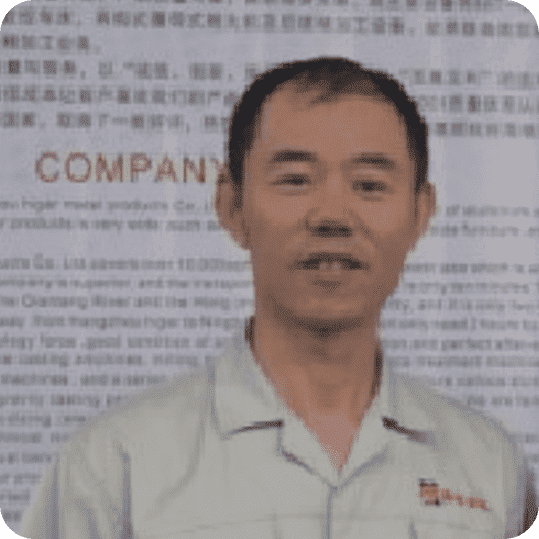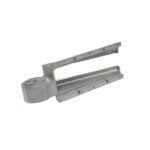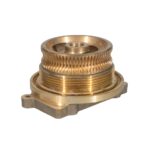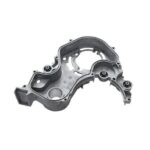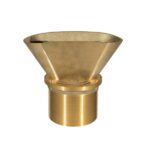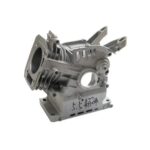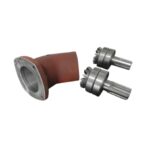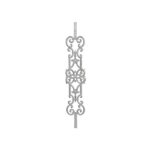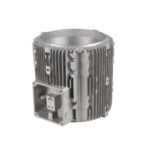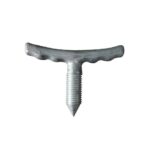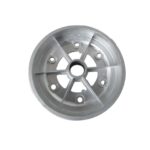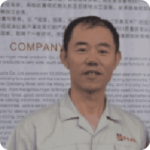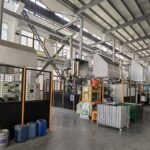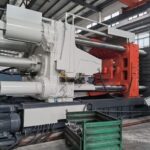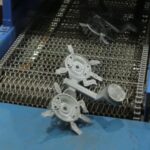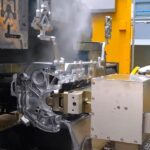Why Aluminum Die Casting Has Become Popular in Russian Railways
In more than 20 years of running our aluminum die casting facility, we’ve supplied countless parts destined for railway systems in harsh climates like Russia’s. Buyers often come to us needing strong but lightweight components that hold up in tough conditions. Aluminum die casting has earned its place in railway manufacturing because it combines durability, weight reduction, and cost efficiency — three points that matter for long stretches of track where maintenance downtime is expensive.
What Major Rail Lines and Networks Operate Across Russia
When we discuss Russian railway projects with buyers, we always keep in mind the scale of their network. Russia operates the largest railway system in the world under a single management — Russian Railways (RZD), stretching over 85,000 km. This includes famous routes like the Trans-Siberian Railway, the Baikal-Amur Mainline (BAM), and extensive commuter systems around cities such as Moscow and Saint Petersburg. For these vast lines, reducing train weight by hundreds of kilograms translates to substantial energy and long-term maintenance savings.
Who Are the Leading Railway Manufacturers in Russia Today
Buyers often ask who actually builds the trains and rolling stock in Russia that use these die cast parts. The main manufacturers include:
- Transmashholding (TMH) — Russia’s largest train and locomotive producer, responsible for metro cars, freight, and passenger coaches.
- Ural Locomotives — a joint venture building electric locomotives and high-speed trains.
- Tver Carriage Works (TVZ) — specializes in long-distance passenger cars and sleeper wagons.
- Demikhovsky Engineering Plant (DMZ) — well known for suburban EMUs.
These companies use a wide range of cast aluminum components, especially in areas where shaving off weight brings down traction and braking energy costs.
Typical Railway Components Made with Aluminum Die Casting
Over the years, we’ve produced thousands of aluminum die cast parts that find their way into Russian trains. Here are some of the most common:
- Cable junction boxes & electrical housings: Protect wiring from vibration and moisture.
- Brake system brackets: Lighter than steel, easing dynamic loads.
- Interior fitting mounts: From seat frames to luggage rack bases, reducing carriage mass.
- Lighting fixtures: Aluminum die cast shells hold up to vibrations and extreme temperatures.
- Sensor and control housings: Stable even after years of temperature cycling.
For these parts, we typically use alloys like ADC12, which has about 10–12% silicon and 1.5–3% copper, balancing flow and mechanical properties to fill thin-wall dies reliably.
Why Aluminum Die Cast Parts Perform Well in Russia’s Harsh Climates
Russia’s railways cross permafrost in Siberia and humid coastal zones along the Pacific, pushing components through huge temperature ranges — often from -40°C to +35°C. Aluminum die castings handle these swings without cracking or warping because the silicon content in ADC12 (or GOST’s similar AK12M2) helps stabilize the material. We regularly produce housings that maintain shape within ±0.05 mm tolerances across such extremes, preventing leaks in sealed enclosures or misalignment in mechanical linkages.
Top Benefits of Choosing Aluminum Die Casting for Railway Projects
When Russian buyers evaluate aluminum die casting, the conversation usually centers on three benefits that make it hard to beat:
- Weight savings: Aluminum is roughly three times lighter than steel, which means each bracket, housing, or frame significantly cuts total train weight.
- Corrosion resistance: Naturally forms an oxide layer, plus we can add anodizing or powder coatings for extra protection.
- Design flexibility: Intricate shapes like internal ribs or complex mounting features come right out of the die, reducing welding and machining.
This combination helps rail operators lower power use, extend brake life, and spend less on long-term upkeep.
What Tolerances and Quality Checks We Ensure for Railway Die Castings
Buyers often want straight answers about what tolerances we can realistically hold on aluminum die cast parts for railway use. Here’s what we promise, based on decades of running these alloys:
| Feature | Our Typical Standard |
|---|---|
| Dimensional tolerance | ±0.05 mm on machined features |
| Flatness / roundness | ≤0.03 mm on critical bores/faces |
| Leak tests | Up to 6 bar air pressure if required |
| Surface finish (as-cast) | ~Ra 3.2-6.3 μm |
| Documentation | Chemical + mechanical test reports |
Whether a buyer is sourcing brake mounts or control housings, they can expect consistent results backed by inspection records that match Russian or international norms.
Why Russian Railway Buyers Choose Us as Their Aluminum Die Casting Supplier
Many of our long-term Russian clients started working with us because they struggled with inconsistent casting quality or delayed shipments from other vendors. We’ve earned trust by giving straight design feedback, like adding small radii to avoid stress cracks or repositioning gates to improve fill. We also routinely provide dual certifications, showing compliance with both ADC12 and GOST AK12M2, helping clear Russian customs without hiccups. That level of hands-on support saves buyers time and trouble, especially when parts are headed into rigorous transport applications.
Looking to Source Aluminum Die Cast Parts for Railways?
If you’re planning your next railway or metro project — whether it’s rolling stock upgrades, new carriage interiors, or trackside control boxes — we’d be glad to help. With over two decades of experience, we know how to balance tight tolerances, realistic timelines, and practical surface treatments so your aluminum die cast parts perform reliably on Russia’s demanding rail lines.
We have successfully completed numerous die casting projects for Aluminum casting parts, particularly in your industry.

Zhejiang Yongzhu Casting Technology Co., Ltd.
Location: Zhejiang, China
Company type: Manufacturers, Producers, Wholesalers
Year Founded: 2004
Main Products: Aluminium die casting, Mold Making, Die Casting, Sand Casting, Gravity Casting
Leading Chinese producer Yongzhu Casting is formerly known as Hangzhou Higer Metal Products Co., Ltd., was established in 2004.
With 20 years of experience in the industry, we are a specialized manufacturer in Aluminum casting and Machining.
Our products are widely used in various applications such as Automotive, Energy, Lighting, Medical, Home Furnishings, Machinery & Equipment etc. Below are our advantages:
Design Review & DFM Support
Our professionals will evaluate your designs and provide suggestions for cost savings. Additionally, we offer Design for Manufacturing (DFM) assistance and conduct mold flow analyses to facilitate efficient production.
State-of-the-Art Manufacturing Equipment
Our facility is equipped with advanced hot-chamber and cold-chamber die casting machinery for aluminum and zinc production.
We also utilize high-precision CNC machines in a temperature-controlled workshop, featuring 3-Axis, 4-Axis and 5-Axis setups to manage any project you have.
Rigorous Quality Control Measures
Our dedicated quality control team ensures that all parts meet the highest standards of quality and consistency. We employ high-accuracy measurement instruments, including CMM, spectrometers, and X-ray detectors.
Comprehensive Surface Treatment Options
We provide a variety of surface finishing techniques for your precision die casting components. Our in-house services include cleaning, polishing, anodizing, shot blasting, and painting.
Flexible Project Acceptance
While larger manufacturers often shy away from low-volume projects, and smaller ones may struggle with quality, Yongzhu Casting stands apart. We prioritize customer satisfaction and willingly accept high-mix, low-volume projects like yours.

